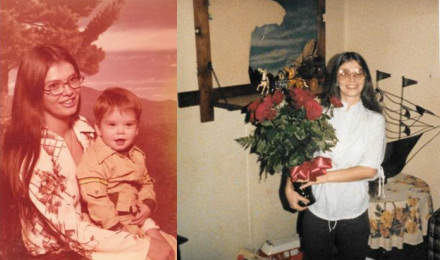
Death, particularly of someone as fundamental to one’s identity as a mother, constitutes a tremendous paradox, and plays a continually paradoxical role in our lives. On the one hand, death is an absence – negation, privation, lack, a nothing. As the ancient Greek philosopher Epicurus said, ‘Death… the most awful of evils, is nothing to us, seeing that, when we are, death is not come, and when death is come, we are not. It is nothing then, either to the living or the dead…’ For Epicurus, since ‘bad’ and ‘good’ are decided according to our experiential frame of reference, and since ‘death’ entails the dissolution of our frame of reference, it can be neither good or bad; it is, in the truest sense, a nothing.
Strictly speaking, Epicurus might very well be right. But the tricky part lies in the on the other hand part. Death may be an absence, but it is experienced as the absence of a presence, an absence with a face – spectrally manifesting in our dreams, memories, and expectations. While it might be nothing to the dead, it is a nothing that is felt, experienced, endured, by the living. The living forever abide in the experience of that nothing, in the presence of that absence. We cohabitate with that solitude. In Augustine’s reflections on the loss of his mother in Confessions, he describes ‘a fresh wound wrought through the sudden wrench of that most sweet and dear custom of living together.’ Today, the wound is once more fresh. I miss you, Karen Sue.
 RSS Feed
RSS Feed